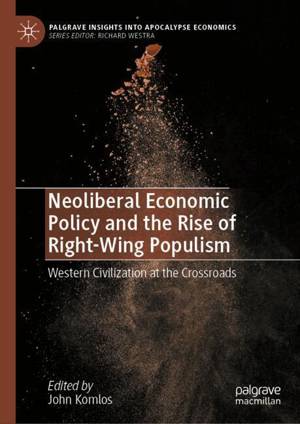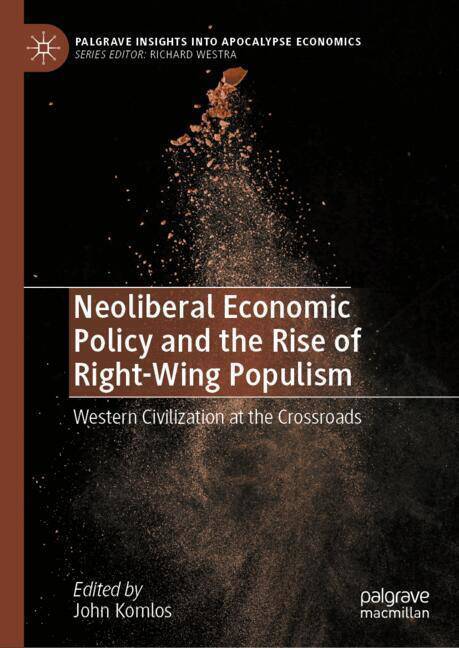
- Retrait gratuit dans votre magasin Club
- 7.000.000 titres dans notre catalogue
- Payer en toute sécurité
- Toujours un magasin près de chez vous
- Retrait gratuit dans votre magasin Club
- 7.000.0000 titres dans notre catalogue
- Payer en toute sécurité
- Toujours un magasin près de chez vous
Neoliberal Economic Policy and the Rise of Right-Wing Populism
Western Civilization at the Crossroads
Description
This edited volume explores and makes explicit the links between neoliberal economic policies and right-wing ideology. The book focuses on the case of the US while situating these trends in the global political economy.
The book brings together contributions from an interdisciplinary perspective, integrating economics, political science and sociology to examine the connections between the economic precarity generated by neoliberalism and the rise of the far right. The book argues that the creation of a flawed capitalist system has left a vacuum in policymakers' ability to understand the impact of economic policies on human welfare and mental health, and can be directly linked to a right-wing populist movement driven by the frustrations associated with the transition from an industrial to a post-industrial economy. Chapters consider the history of neoliberalism and comparative studies of socio-economic conditions, before tackling specific issues associated with neoliberal policy, such as the demise of unions, the decline in manufacturing jobs, the gig economy, trickle-down economics, income inequality and the rise of elites in America. This book will be of interest to a broad range of readers, including those in politics, economics, sociology, industrial organization and labour studies.
Spécifications
Parties prenantes
- Editeur:
Contenu
- Nombre de pages :
- 357
- Langue:
- Anglais
- Collection :
Caractéristiques
- EAN:
- 9783031749780
- Date de parution :
- 04-02-25
- Format:
- Livre relié
- Format numérique:
- Genaaid
- Dimensions :
- 148 mm x 210 mm

Les avis
Nous publions uniquement les avis qui respectent les conditions requises. Consultez nos conditions pour les avis.





